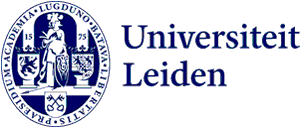
‘Ask scientists how to build the circular economy’
Some governments and companies are pursuing a more circular economy, but what is the best way to get there? An international group of industrial ecology researchers wrote a report that stresses the importance of including the scientific side into policies and practices. ‘We feel an obligation to support the path towards a circular economy in a responsible manner’, says assistant professor Tomer Fishman from the Institute of Environmental Sciences (CML).
A circular economy is a model of production and consumption, which keeps all products and materials in use. All forms of waste, including textiles, old electronics and scrap metal would be returned to the economy, or used in a more efficient way. That extends the life cycle of products and reduces the impact on the environment. This contrasts with our current globalised ‘linear’ economy in which we extract resources, manufacture products, use them, and then throw them away.
Applying the principles of industrial ecology
To come to a circular economy, applying the principles of industrial ecology could be very useful, this group of researchers argues. This discipline has been focusing on the minimisation of waste, predicting the impacts of new products, and designing environmental-friendly systems for decades. Together with colleagues from all over the world, Leiden industrial ecologist Tomer Fishman wrote the whitepaper 10 insights from industrial ecology for the circular economy. ‘The goal is to make the science of the circular economy accessible to decision makers, the public, industry, businesses and everyone interested.’
The International Society for Industrial Ecology (ISIE) promotes the field of industrial ecology to address sustainability challenges and achieve a circular economy. It facilitates communication among scientists, engineers, policymakers, managers and advocates who are interested in better integrating environmental concerns with economic activities. Tomer Fishman was one of the researchers that pushed for the scientific committee to get more proactive in addressing the circular economy concepts. This whitepaper is one of several initiatives that are coming out of that.
Shifting the problem elsewhere
One of the key insights of the report is a recommendation for a life cycle perspective. That includes all impacts from raw material extraction to end-of-life waste. In that way, the researchers want to ensure that a potential answer to a problem doesn’t simply end up shifting the problem elsewhere, or cause a worse problem. Reusable cups, for example, were adopted by fast food companies as an answer to disposable takeaway cups. Lead author of the whitepaper Stijn van Ewijk: ‘Reuse is often better, but it depends on the type of cup and how often you use it. People often have many reusable cups at home and don’t regularly reuse them, which only increases overall emissions.’

Are electric cars really the solution?
One of the other main insights is the early, whole-system intervention to prevent waste. Instead of trying to tweak current systems to minimise impacts, the report asks to design systems that are more efficient and long lasting. Think of electric cars for example. They might be a solution to fossil fuel pollution, but also reinforce the existing problem of more cars on the road, instead of working on a better-designed public transport. ‘We need to rethink mobility from a systems perspective,’ says van Ewijk. ‘Electric cars solve the problem of fossil fuel cars, but not the problem of cars.’
‘Our forward-looking assessment methods help anticipate the environmental benefits of new technologies and practices’
Industrial ecology can’t predict the future
The group says they do not have all the answers, but emphasizes the need for a scientific approach to the circular economy. ‘On a purely practical level, we want to urge political leaders and companies to work with industrial ecologists to develop new policies,’ says Van Ewijk. ‘We can help in understanding the existing evidence or look for the answers by using conventional methods in our field. Industrial ecology can’t predict the future, but our forward-looking assessment methods help anticipate the environmental benefits of new technologies and practices.’
Misusing a circular economy for greenwashing
A circular economy is a great concept, but we have to keep in mind that it’s a tool to get to our goals of sustainability, says Fishman. ‘It can’t be the goal itself.’ With this paper, Fishman and his colleagues want to offer a realistic view. ‘We want to help it come true. But at the same time we need to make sure it is not misused for greenwashing or gets overhyped. Our work shows both the potentials as well as the limitations of this concept.’
It’s not always straightforward to find a win-win situation, Fishman says. ‘That is because of the complexity of issues around a circular economy. There are always trade-offs, but we want everyone to know that our scientific research field of Industrial Ecology is there to help.’
A whitepaper is an informational document that promotes solutions and even a service for a certain problem. In this case, it offers insights, solutions and suggestions to come to a circular economy. The lead author of the white paper is Dr Stijn van Ewijk from University College London (UCL). The other authors include researchers from Leiden University, the Illinois Institute of Technology, the Technical University of Berlin, the University of Antwerp, Yale University, City University of Hong Kong, University of Limerick, Newcastle University, Helmholtz Centre for Environmental Research & University of Jena, Metabolic Institute, Delft University of Technology, and Imperial College London.
